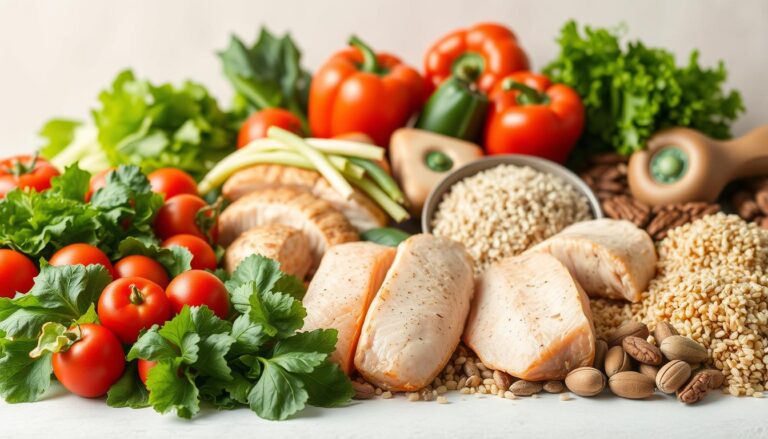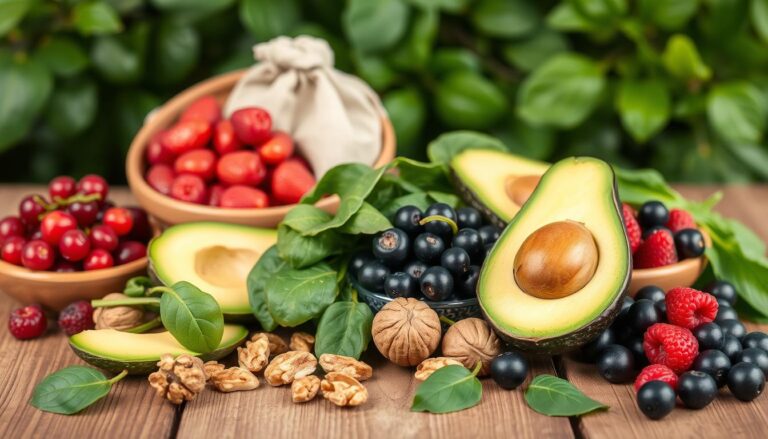Chia seeds the edible seeds of a flowering plant from the mint family native to Mexico and Guatemala have been a vital part of ancient cultures for centuries.
These tiny nutrient rich seeds were not only a staple crop but also had various medicinal uses.
As we explore the effects of incorporating chia seeds into your daily diet, we will examine the scientific evidence behind their reputation as a superfood. With their exceptional nutritional profile including omega-3 fatty acids fiber, and protein, chia seeds have gained significant popularity in recent years.
But what makes chia seeds so special, and how can they impact your overall health? Let’s dive into the world of these tiny powerhouses and uncover their potential health benefits.
Key Takeaways
- Chia seeds are rich in omega-3 fatty acids, fiber, and protein.
- They have been used for centuries for their medicinal properties.
- Incorporating chia seeds into your diet can lead to various health benefits.
- Chia seeds can positively impact cardiovascular health and digestive function.
- Understanding how to consume chia seeds optimally is key to maximizing their benefits.
The Nutritional Powerhouse Understanding Chia Seeds
The tiny chia seed packs a massive nutritional punch. Chia seeds have been a staple in ancient cultures for centuries, and their nutritional benefits are now being recognized globally.
Origin and History of Chia Seeds
Chia seeds have a rich history dating back to the ancient Mayans and Aztecs who considered them a vital source of nutrition. They were used as a primary source of energy and were also used in religious rituals.
Impressive Nutritional Profile
Chia seeds are an excellent source of nutrients, including omega-3 fatty acids, protein, and antioxidants. One serving about two tablespoons provides a significant amount of grams of fiber, protein, and various essential minerals like calcium phosphorus, and magnesium.
The nutritional profile of chia seeds is highlighted in the following table:
| Nutrient | Amount per 2 tbsp | % Daily Value |
|---|---|---|
| Omega-3 fatty acids | 4915 mg | 100% |
| Protein | 4 grams | 8% |
| Soluble Fiber | 5 grams | 20% |
| Calcium | 75 mg | 7.5% |
The antioxidants present in chia seeds such as chlorogenic acid caffeic acid myricetin quercetin, and kaempferol help protect the body against oxidative stress and inflammation, and may have protective effects on the heart and liver as well as anticancer properties.
What Happens When You Add Chia Seeds to Your Daily Diet
Consuming chia seeds regularly can lead to various health benefits, from improved digestion to enhanced heart health. As a rich source of nutrients, chia seeds can have both immediate and long-term effects on the body.
Immediate Effects on Digestion and Satiety
One of the immediate effects of consuming chia seeds is their impact on digestion and satiety. The high fiber content in chia seeds can help regulate bowel movements and promote a feeling of fullness, which can be beneficial for those looking to manage their weight.

Long term Health Benefits
The long-term health benefits of consuming chia seeds are numerous. Some of the key advantages include:
- Improved cardiovascular health through lowered blood pressure and reduced inflammation
- Support for brain health and cognitive function due to the
- fatty acids in chia seeds
- Regulation of hormones involved in metabolism and appetite control, potentially supporting healthy weight management
| Nutrient | Benefit |
|---|---|
| Calcium | Maintains bone mineral density |
| Phosphorus | Supports bone health |
| Magnesium | Contributes to bone strength |
| Omega-3 fatty acids | Reduces inflammation and supports heart health |
These health benefits make chia seeds a valuable addition to a daily diet, potentially reducing the risk of heart disease and supporting overall health.
Boosting Heart Health with Daily Chia Consumption
The daily consumption of chia seeds can lead to improved cardiovascular health. Chia seeds are rich in nutrients that can help support heart health including omega-3 fatty acids fiber, and potassium.
Research has shown that chia seeds can have a positive impact on heart health by reducing the risk of heart disease.
Impact on Cholesterol Levels
Consuming chia seeds has been found to help lower cholesterol levels, which can contribute to a reduced risk of heart disease. The fiber content in chia seeds can help remove excess cholesterol from the digestive system, while the omega-3 fatty acids can help reduce inflammation in the blood vessels.
| Component | Effect on Cholesterol |
|---|---|
| Fiber | Removes excess cholesterol |
| Omega-3 fatty acids | Reduces inflammation |
Blood Pressure Regulation
Several clinical studies have demonstrated that regular consumption of chia seeds can lead to modest but significant reductions in both systolic and diastolic blood pressure, particularly in individuals with hypertension.
- The high content of potassium, magnesium, and fiber in chia seeds plays a crucial role in blood pressure regulation.
- The omega-3 fatty acids in chia seeds help reduce inflammation in blood vessels and improve their elasticity.
As Dr. XXX notes, A diet rich in chia seeds can be a useful adjunct to traditional treatments for hypertension.
The combination of multiple nutrients in chia seeds works together to support healthy blood pressure levels, potentially reducing the risk of heart attacks strokes, and other complications of hypertension when consumed regularly.
Weight Management Benefits of Chia Seeds
As a nutrient-rich food, chia seeds may offer several benefits for those trying to lose weight or maintain weight loss. The high fiber and protein content in chia seeds can help promote feelings of fullness, making it easier to manage weight.
How Chia Seeds Promote Fullness
Chia seeds absorb liquid and expand in the stomach, forming a gel like texture that slows down digestion and promotes a feeling of satiety. This can lead to reduced calorie intake and support weight management efforts. The fiber in chia seeds also plays a crucial role in promoting fullness and preventing overeating.
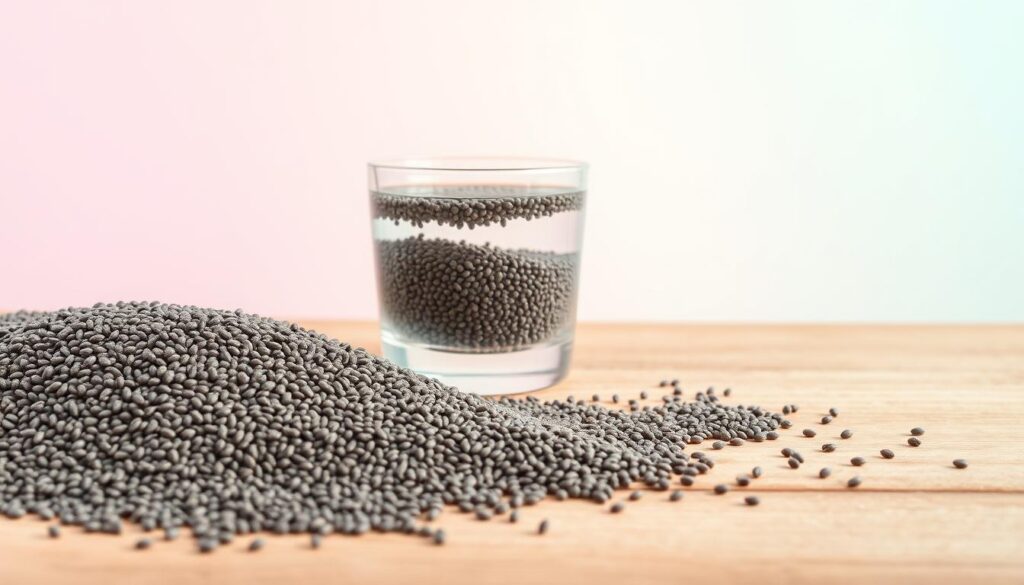
Research on Chia Seeds and Weight Loss
Studies examining the effectiveness of chia seeds for weight loss have shown mixed results. While some research suggests that chia seeds may aid in weight loss when combined with a reduced calorie diet, others have found no significant benefits.
A six-month study found that participants with type 2 diabetes who added chia seeds to their diet experienced greater weight loss than those who received a placebo.
The seeds may be particularly effective for reducing visceral fat, which is strongly linked to metabolic diseases. Incorporating chia seeds into a balanced diet may be a useful addition to a weight management plan.
Blood Sugar Regulation and Diabetes Management
Chia seeds are emerging as a potential natural remedy for managing blood sugar. Research in humans is sparse, but some older studies have shown promising results.
Stabilizing Blood Sugar
Some studies suggest that eating bread containing chia seeds helps lower post-meal rises in blood sugar among healthy adults. The high fiber content of chia seeds can help mitigate the sugar impact of other carbohydrates consumed in the same meal.
Benefits for Diabetics
For individuals with diabetes, consuming chia seeds can lead to improvements in several key markers, including HbA1c levels. The anti-inflammatory properties of chia seeds may help reduce the chronic inflammation associated with diabetes, potentially decreasing the risk of complications.
Regular consumption of chia seeds may help improve lipid profiles, addressing the cardiovascular health risks that often accompany diabetes.
Strengthening Bones and Muscles
The nutritional profile of chia seeds makes them an ideal addition to a diet focused on bone and muscle health. Chia seeds are rich in various nutrients that are essential for maintaining strong bones and muscles.
Essential Minerals for Bone Health
Chia seeds are a good source of several minerals crucial for bone health, including calcium, magnesium, and phosphorus. These minerals are vital for maintaining bone density and preventing conditions such as osteoporosis. Consuming chia seeds can help support bone health, reducing the risk of fractures and bone-related disorders.
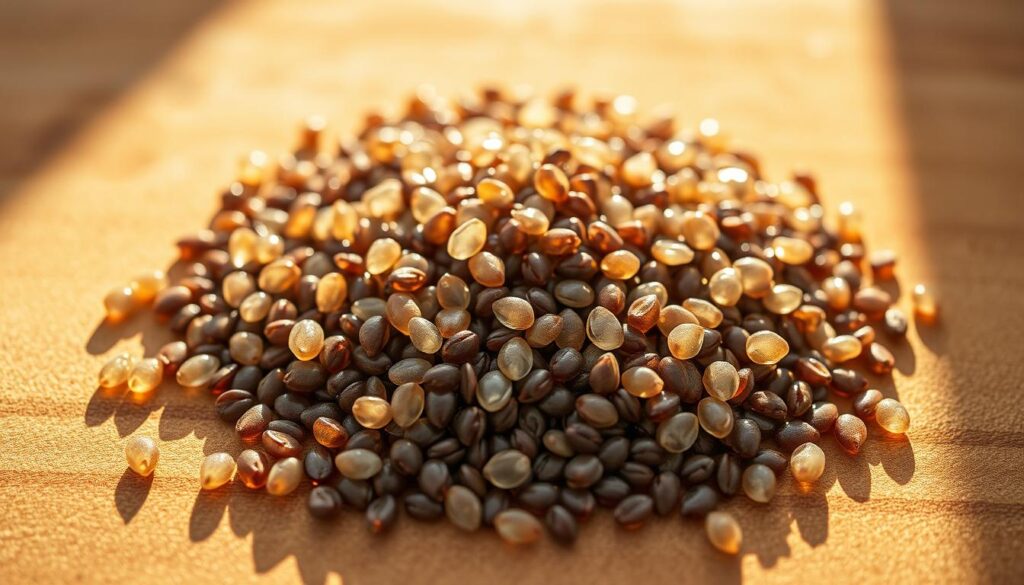
Protein Content and Muscle Support
Chia seeds are an excellent source of protein, containing all nine essential amino acids that the body cannot produce on its own. With approximately 4.7 grams of protein per ounce, chia seeds are one of the highest protein seeds available, making them a valuable plant based protein source for vegetarians and vegans.
The protein content in chia seeds supports muscle synthesis and repair, which is particularly beneficial for athletes and individuals who engage in regular physical activity.
Digestive Health Improvements
The high fiber content in chia seeds makes them an excellent addition for improving digestive health. Chia seeds are rich in fiber, which plays a crucial role in maintaining a healthy gut.
Fiber Content and Gut Health
The fiber in chia seeds can help to fight free radicals in the body, reducing oxidative stress and cell damage. Eating foods rich in antioxidants, like chia seeds, may help reduce the risk of various health issues, including heart disease and certain types of cancer. The fiber content in chia seeds supports gut health by promoting a balanced gut microbiota.
Prebiotic Benefits
The mucilaginous fiber in chia seeds serves as a prebiotic substrate, feeding beneficial bacteria species like Bifidobacteria and Lactobacillus in the gut. Research indicates that the fermentation of chia seed fiber by gut bacteria produces short-chain fatty acids, which provide energy to colon cells and have anti-inflammatory properties.
The prebiotic effects of chia seeds may help strengthen the intestinal barrier function, reducing leaky gut issues and supporting overall gut health.
- The prebiotic benefits of chia seeds extend beyond the gut, potentially influencing brain health and immune function.
- Regular consumption of chia seeds may help restore microbial diversity after antibiotic treatment or illness.
Potential Side Effects and Precautions
As with any food, consuming chia seeds may lead to some adverse effects in certain individuals. While they offer numerous health benefits, it’s essential to be aware of the potential risks and take necessary precautions.
Digestive Discomfort
Some people may experience digestive discomfort when consuming chia seeds, particularly if they are not used to a high-fiber diet. Drinking enough water can help mitigate this issue. A sudden increase in fiber intake can lead to discomfort, so it’s advisable to gradually introduce chia seeds into your diet.
Choking Hazards
Chia seeds can absorb water and expand, potentially causing a choking hazard if they are not properly soaked before consumption. To avoid this risk it’s recommended to soak chia seeds in water or other liquids before eating them.
Medication Interactions
Chia seeds may interact with certain medications, such as blood-thinning medications and those for disease management like diabetes. The seeds may enhance the effects of these medications, potentially leading to adverse effects. For instance, the high omega-3 content in chia seeds can increase the risk of bleeding when taken with anticoagulant medications.
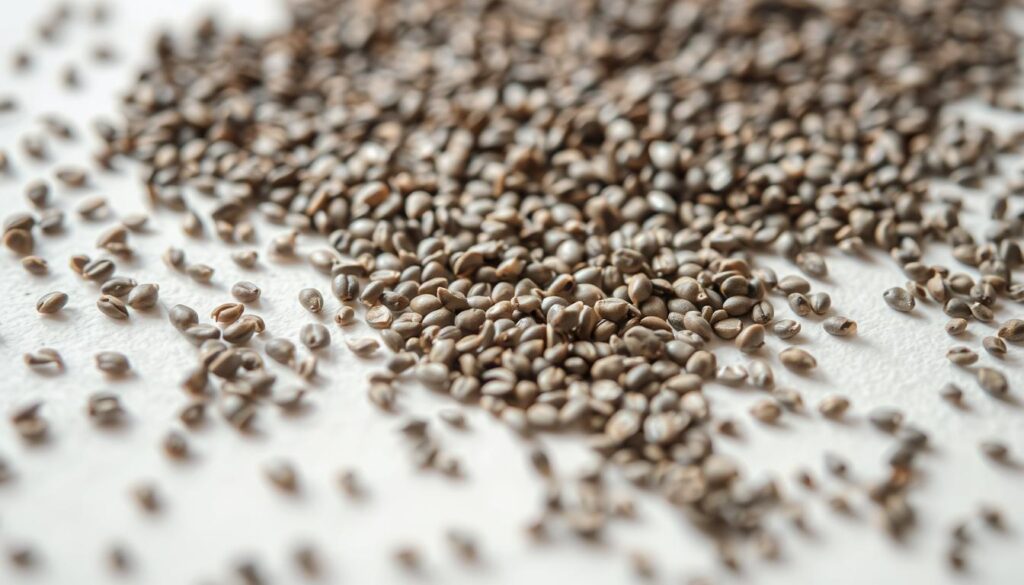
Creative Ways to Add Chia Seeds to Your Diet
Chia seeds can be incorporated into your daily meals in many innovative ways. They can be used in various dishes, from breakfast to baked goods, and even as a binding agent in certain recipes.
Chia Puddings and Breakfast Ideas
You can create a nutritious breakfast by making chia pudding with almond milk or other non-dairy alternatives. Mixing chia seeds with milk or yogurt and letting it sit overnight can result in a healthy and filling breakfast.
Smoothies and Beverages
Adding chia seeds to smoothies can boost their nutritional value. You can also make chia-based beverages by mixing chia seeds with water or other liquids, creating a refreshing drink.
Baking and Cooking Applications
Chia seeds can be used in baked goods like muffins, bread, and cookies, enhancing their nutritional profile. They can also serve as an egg substitute or a binding agent in certain recipes.
| Application | Benefits | Examples |
|---|---|---|
| Baked Goods | Increased fiber protein, and minerals | Muffins, bread, cookies |
| Smoothies and Beverages | Boosted nutritional value | Chia-based drinks, smoothies |
| Binding Agent | Replaces eggs or breadcrumbs | Meatloaf, burger patties |
Conclusion Making Chia Seeds a Sustainable Part of Your Diet
By adding chia seeds to your diet, you can take a proactive step towards improving your overall health. To make chia seeds a sustainable part of your diet, find preparation methods that fit your taste preferences and lifestyle, such as chia pudding or smoothies.
Start with small amounts 1 teaspoon daily and gradually increase to 1-3 tablespoons per day, paired with adequate hydration to maximize benefits and prevent digestive discomfort.
Remember to store chia seeds properly and consume them as part of a varied, balanced diet. With these guidelines, you can harness the benefits of chia seeds and enhance your overall health and diet.
FAQ
Q: Are chia seeds a good source of omega-3 fatty acids?
A: Yes, chia seeds are an excellent source of omega-3 fatty acids, specifically alpha linolenic acid ALA, which is essential for heart health and brain function.
Q: How do chia seeds help with blood pressure regulation?
A: Chia seeds may help regulate blood pressure due to their high content of omega-3 fatty acids, fiber, and minerals like potassium and magnesium, which can help relax blood vessels and improve overall cardiovascular health.
Q: Can chia seeds help with weight loss?
A: Chia seeds can aid in weight loss by promoting feelings of fullness and satiety due to their high fiber content. They can also help slow down digestion, reducing the likelihood of overeating.
Q: Are chia seeds beneficial for digestive health?
A: Yes, chia seeds are beneficial for digestive health due to their high fiber content, which can help regulate bowel movements, prevent constipation, and support the growth of beneficial gut bacteria.
Q: Can I consume chia seeds if I have diabetes?
A: Yes, chia seeds can be beneficial for people with diabetes as they can help stabilize blood sugar levels due to their high fiber content and omega-3 fatty acids, which can improve insulin sensitivity.
Q: How can I incorporate chia seeds into my diet?
A: Chia seeds can be easily incorporated into your diet by adding them to smoothies, baked goods, salads, or making chia pudding. They can also be used as an egg substitute in recipes.
Q: Are there any potential side effects of consuming chia seeds?
A: While chia seeds are generally safe to consume, some people may experience digestive discomfort or allergic reactions. It is also important to be aware of the potential choking hazard when consuming chia seeds, especially if they are not soaked properly.
